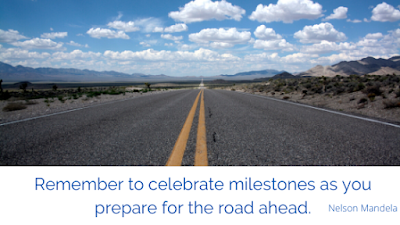As the semester ends, it can be bittersweet, and we can feel overwhelmed with the tasks at hand. We must prioritize what we do with our 86,400 seconds each day. I want to encourage you to carve out time to collect feedback from your students and to provide a sense of closure. I suggest providing students an opportunity to say goodbye, to reflect on the semester, and to celebrate their accomplishments. Here are four suggestions on how you can finish well.
1. Farewell Discussion – Create an optional discussion forum as a place where students can share what they learned from the course with each other, say goodbye, or exchange information with other students within the course. This suggestion is a formal way to create a sense of closure. If you build a community of learners, it is only proper to create a sense of closure at the end of the semester.
2. Exit Survey – Ask students for feedback on their experiences within your course. Ask questions that address the navigation, organization, and design of the material. Other options include asking about the online learning community, the time students put into the course, content material, as well as strengths and weaknesses of the course. Ask questions specific to new pieces you added to the course. An exit survey is one of the most valuable items I have found in the instructional design process. Students will give you constructive feedback and share ideas as to how it could have worked better. After you collect the results, let the students know you read their feedback by sharing some of the changes you are going to make for the next semester. This follow-up also gives you an opportunity to clarify any misconceptions. When students realize that you value their feedback, they will take time and give you their honest opinions. I would highly recommend sending out a minimum of two surveys per semester.
3. A Culminating Assignment - This assignment may bring a sense of closure while also allowing students to assess if they reached the course’s learning objectives. This could be a group or individual project submitted at the end of the semester which demonstrates students’ understanding of the learning objectives.
4. Final Announcement – Let students know that final grades are posted and where they can find your individual feedback. Share some of your highlights from the semester and provide group feedback. Use quotes or comics to say your goodbye. It’s also a good idea to remind students how long they will have access to your blackboard page before it is unavailable to them.
Providing closure helps everyone know they can move on to the next course or next step in life. It also gives time for students to contact you if they think there have been any misunderstandings. Allowing students to voice their opinions and give constructive feedback on their course experience will help you finish well. The information you collect will allow you to identify gaps between what was intended and what was achieved. You may then utilize that information in making decisions as you prepare for subsequent semesters. Finish well, my friends, and in the process, we will continue to learn what we can do to increase student learning in the communities we build online.
“Teaching is more than imparting knowledge; it is inspiring change. Learning is more than absorbing facts; it is acquiring understanding.” -William Arthur Ward
Additional Resources:
A New Twist on End of Semester Evaluation – Faculty Focus Article
3 Surveys for Student Feedback to Improve Instruction
Online Learning Coordinator
Feel free to leave comments below


Best Online Learning Platforms, We are really grateful for your blog post. You will find a lot of approaches after visiting your post. I was exactly searching for. Thanks for such post and please keep it up. Great work.
ReplyDelete